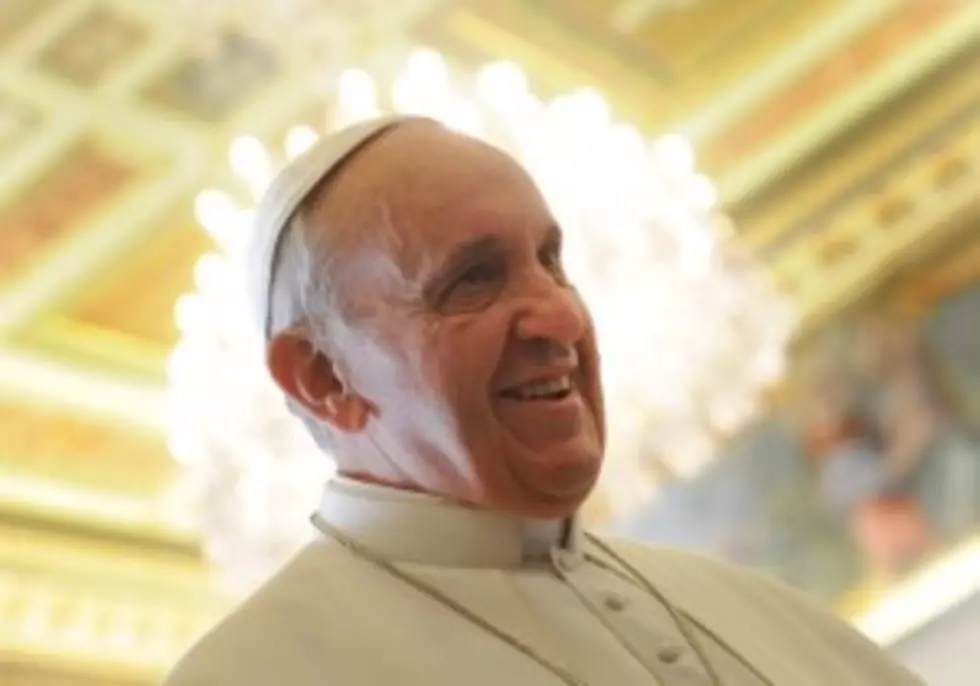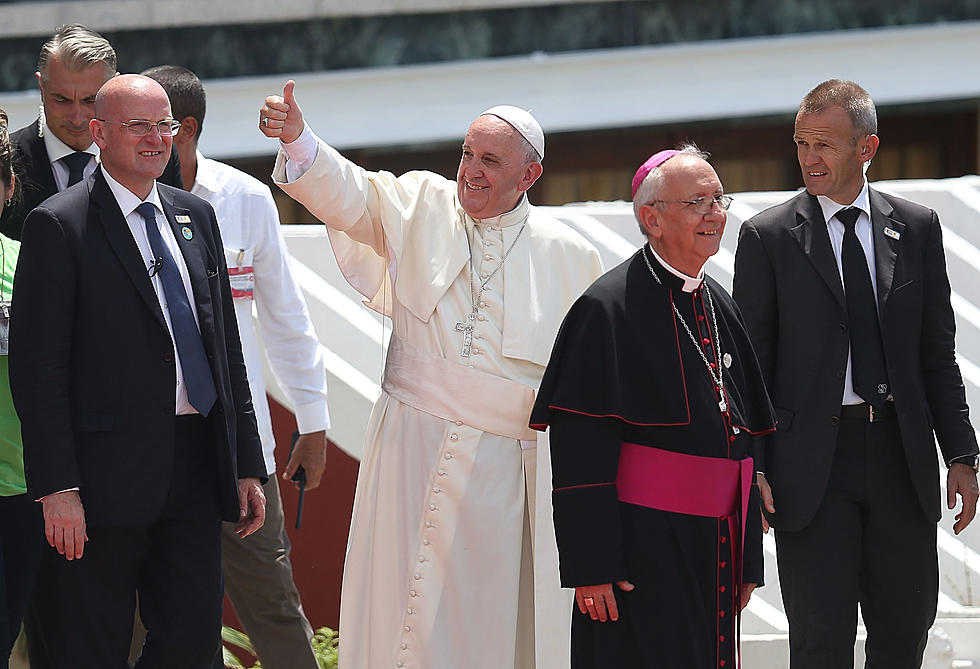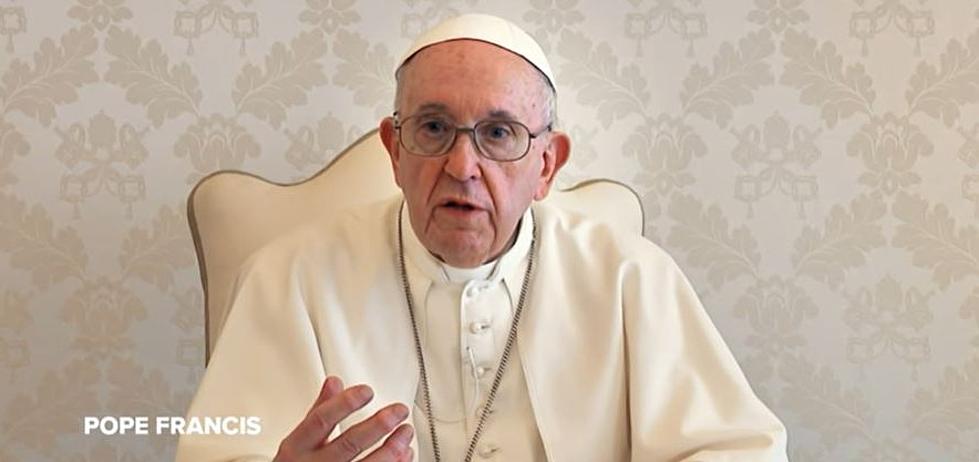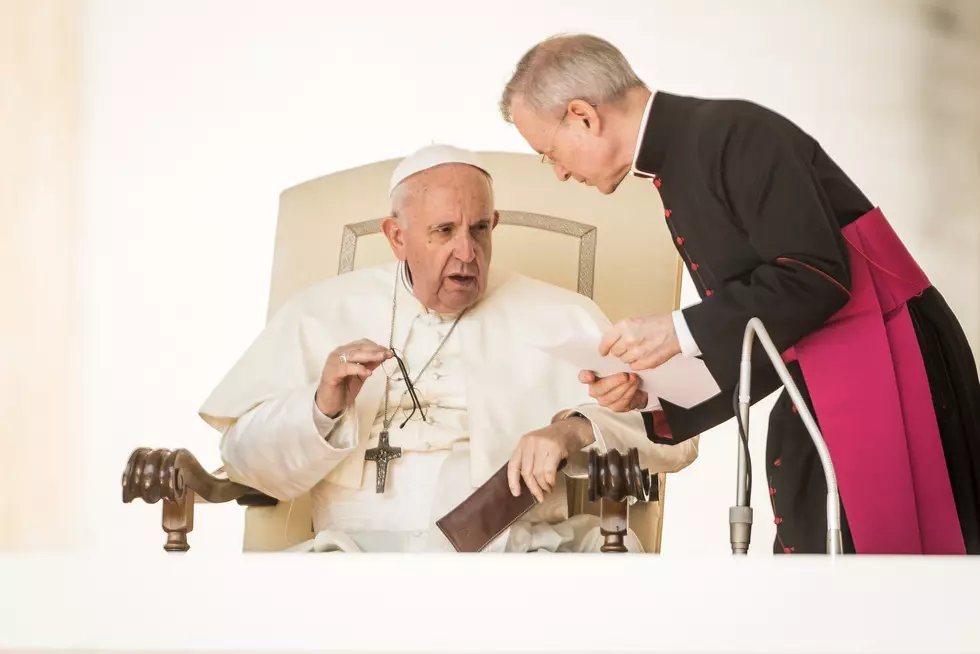
Pope Francis Shakes Up Church Leadership
Pope Francis named eight cardinals from around the globe Saturday to advise him on running the Catholic Church and reforming the Vatican bureaucracy, marking his first month as pope with a major initiative to reflect the universal nature of the church in key governing decisions.
The advisory panel includes only one current Vatican official. The rest are cardinals from North, Central and South America, Africa, Asia, Europe and Australia. Many have been outspoken in calling for a shake-up of the Vatican bureaucracy, which was last reformed 25 years ago, while others have tried to clean up the church from sexually abusive priests.
In the run-up to the conclave that elected Francis the first Latin American pope one month ago, many cardinals demanded the Vatican be more responsive to their needs on the ground and said the Holy See bureaucracy itself must be overhauled. Including representatives from each continent in a permanent advisory panel to the pope would seem to go a long way toward answering those calls.
In its announcement Saturday, the Vatican said Francis got the idea to form the advisory body from the pre-conclave meetings where such complaints were aired. "He has formed a group of cardinals to advise him in the governing of the universal church and to study a revision of the apostolic constitution Pastor Bonus on the Roman Curia," the statement said.
A reform of the Vatican bureaucracy has been demanded for years, given that both John Paul II and Benedict XVI essentially neglected in-house administration of the Holy See in favor of other priorities. But the calls for change grew deafening last year after the leaks of papal documents exposed petty turf battles within the Vatican bureaucracy, allegations of corruption in the running of the Vatican city state, and even a purported plot by senior Vatican officials to out a prominent Catholic as gay.
Francis' advisory group will meet in its inaugural session Oct. 1-3, though Francis is already in contact with the group's members, the Vatican said.
The Vatican spokesman, the Rev. Federico Lombardi, stressed that the cardinals are a consultative body, not a decision-making one, and that they won't take the place of the Vatican bureaucracy.
The church is growing and counts most of the world's Catholics in the southern hemisphere, while it's shrinking in Europe. Yet the Vatican and the 200-strong College of Cardinals, traditionally the pope's primary advisers, remain heavily European.
Lombardi said the fact that Francis selected cardinals from every continent indicated he wanted to reflect the universal nature of the church in Vatican decision-making.
"The Roman Curia retains all its fundamental functions helping the pope in the daily governance of the universal church," Lombardi told Vatican Radio. "The naming of this group adds to this, in a certain sense integrates it, with a universal point of view and voices from different parts of the world."
The members of the panel include Italian Cardinal Giuseppe Bertello, president of the Vatican city state administration — a key position that oversees, among other things, the Vatican's profit-making museums. The non-Vatican officials include Cardinals Francisco Javier Errazuriz Ossa, the retired archbishop of Santiago, Chile; Oswald Gracias, archbishop of Mumbai, India; Reinhard Marx, archbishop of Munich and Freising, Germany; Laurent Monsengwo Pasinya, archbishop of Kinshasa, Congo; Sean Patrick O'Malley, the archbishop of Boston; George Pell, archbishop of Sydney, Australia; and Oscar Andrés Rodríguez Maradiaga, archbishop of Tegucigalpa, Honduras, who will serve as coordinator.
Monsignor Marcello Semeraro, bishop of Albano, Italy will be the panel secretary.
O'Malley, a Capuchin friar, has spent his career cleaning up churches from sexually abusive priests. Pell was outspoken in the run-up to the conclave about the need for reform in the bureaucracy. Maradiaga heads the church's Caritas International charity federation and is a rare moderate in the College of Cardinals who hasn't shied from criticizing the failings of the curia.
In theory, all popes have cardinals at their disposal to serve as advisers; advising the pope is a cardinal's main job aside from voting in conclaves. But neither John Paul nor Benedict made frequent use of their cardinal advisers, in part because they were so far away and numbered more than 200.
With such a small group of men hand-picked by the pope to specifically advise him in running the church and reforming the Vatican, it appears Francis wants a more collegial type of governance for his papacy. That also would meld with his reluctance to call himself pope in favor of his other main title, bishop of Rome.
That said, the former Cardinal Jorge Mario Bergoglio is on record saying that when it comes time to actually making decisions, he is very much a loner.
"One can ask for advice but, in the end, one must decide alone," he said in the 2010 book "The Jesuit" written by his authorized biographer. Doing so means making mistakes, and Bergoglio acknowledged he had made plenty in his lifetime.
"That's why the important thing is to ask God," he said.
High on the list of reforms called for by the cardinals is a call for the Vatican to serve the bishops in the field, and not the other way around.
"It just doesn't work either very quickly or very efficiently," U.S. Cardinal Francis George, the archbishop of Chicago, said in an interview soon after Francis was elected. "Take marriage cases: People shouldn't have to be asked to wait three, four, five, six years to get a response" for a request for an annulment.
Aside from Saturday's announcement, Francis has made one Vatican appointment so far, naming a member of the order of his namesake, St. Francis of Assisi, to the important No. 2 spot at the Vatican's congregation for religious orders.
His most eagerly-watched appointment has yet to come: that of the Vatican secretary of state, who runs the day-to-day administration of the Holy See. Currently, the position is held by Cardinal Tarcisio Bertone, a 78-year-old canon lawyer whose administrative shortcomings have been blamed for many of the Vatican's current problems today.
George Weigel, a papal biographer who interviewed Bergoglio last May for his new book "Evangelical Catholicism," said Francis understands well the problems of the curia, saying he "displayed a shrewd, but not cynical, grasp of just what was wrong with the church's central bureaucratic machinery, and why."
"I think we can expect the new pope to lead the church in a purification and renewal of the episcopate, the priesthood, the religious life, and the curia, because he understands that scandal, corruption, and incompetence are impediments" to the mission of spreading the faith, Weigel wrote in a recent essay.
Cardinal Timothy Dolan of New York, who has become something of the ringleader of the reform group, said he had high hopes that Francis would turn the Holy See into a model of good governance given his background and no nonsense style.
"Sometimes in the past the curia has been an example of what not to do, instead of what to do," Dolan said in an interview after Francis' installation. "We need to look to the Holy See and the Roman Curia as a model of good governance, of honesty, of simplicity, of frugality, of transparency, of candor, of raw Gospel service, of a lack of careerism, of people who are driven by virtue."
Dolan suggested that one crucial area of reform would be imposing term limits on Vatican bureaucrats to prevent them from becoming lifers. He said there was also no reason why more laymen and women couldn't be brought into the Vatican bureaucracy, and that the administration itself could shrink.
More From News Talk 96.5 KPEL









